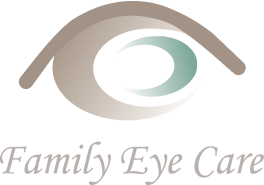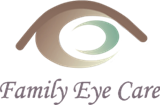At Family Eye Care, we understand the importance of comprehensive eye examinations for safeguarding your vision and overall eye health. That’s why our comprehensive eye examinations are designed to provide thorough assessments of your visual acuity and eye function, and enable the early detection of any potential eye conditions.
Preserving Visual Acuity
Comprehensive eye exams enable us to assess your visual acuity and detect any refractive errors, such as nearsightedness, farsightedness, or astigmatism. Correcting these errors with prescription glasses or contact lenses ensures clear and comfortable vision for daily activities.
Monitoring Eye Health
Regular eye exams help monitor changes in your eye health over time. By tracking any developments or progression of existing conditions, we can tailor treatment plans to meet your specific needs and maintain optimal eye health.
Early Detection of Eye Conditions
Comprehensive eye exams play a pivotal role in detecting various eye conditions at their earliest stages. For example, conditions such as glaucoma, cataracts, and macular degeneration can be identified early, allowing for timely intervention and management to prevent vision loss.
How often should I get a comprehensive eye exam?
The frequency of eye exams recommended by our optometrists follows general guidelines based on age and risk factors.
Children and teenagers
A comprehensive eye exam is recommended every year. Children can be seen for an eye exam from as young as 6 months. More frequent exams are always recommended if you have any additional concerns about your child’s vision.
Adults aged 18 to 60
Regular eye exams are typically advised every 1-2 years, depending on individual eye health and risk factors.
Adults aged 61 and older
As you age, the risk of developing age-related eye conditions increases. Therefore, annual comprehensive eye exams are recommended to look for any changes and ensure early detection and management.
Specific tests and specialist assessments
During a comprehensive eye exam, our optometrists perform various tests to assess different aspects of your eye health.
- OCT (optical coherence tomography)
This advanced imaging technique provides detailed cross-sectional images of the retina, helping detect conditions such as macular degeneration and glaucoma. - Retinal Imaging
This test involves capturing high-resolution images of the retina to detect signs of diabetic retinopathy, macular degeneration, and other retinal diseases. - IOP (intraocular pressure) Measurement
Using specialized tonometry devices, we measure the pressure within your eyes to screen for glaucoma. - Visual Field Testing
This test evaluates your peripheral vision, aiding in the detection of conditions such as glaucoma and optic nerve damage.
Book your appointment
Take the first step towards preserving your vision and maintaining optimal eye health, and request a comprehensive eye exam today.


